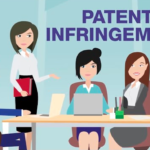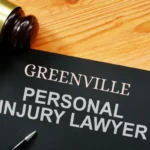Despite the harsh penalties for being convicted of driving while under the influence (DUI) of alcohol in the state of Georgia and throughout the United States, DUI is still a problem in our country.
According to the Center for Disease Control (CDC), an estimated 29 people die every day in the U.S. due to car accidents involving a drunk driver equaling roughly one drunk driving fatality every 50 minutes.

According to the National Highway Traffic Safety Administration (NHTSA), there were an estimated 10,874 car accident fatalities involving a drunk driver with a blood alcohol content (BAC) level of .08%, the legal limit in the state of Georgia, or higher in 2017.
In Georgia specifically, the Governor’s Office of Highway Safety has indicated that there were 1,554 car accident fatalities in 2016 with 368 of these car accidents involving a driver that was at or above the legal alcohol limit.
This means that 24% of all car accident fatalities in our state involved a drunk driver with a BAC level of .08% or higher. Although each adult consuming alcohol makes a choice to get behind the wheel of a car, they are not the only people that can be held liable for a drunk driving accident.
Restaurants, bars, and other establishments that serve alcohol have an obligation to stop serving a customer alcohol in certain cases, and the business can be held liable for damages incurred by an accident victim due the businesses failure to stop serving alcohol to the intoxicated customer who ultimately caused the car accident to occur.
Dram Shop Liability Laws in Georgia
The body of law that holds individuals who serve or furnish alcohol to a drunk driver liable for that drivers actions is referred to as dram shop liability law.
According to the Atlanta car accident attorneys at Cambre & Associates, Georgia’s Dram Shop Act is codified under O.C.G.A. § 51-1-40, and this statute applies not only to businesses but also, to social events held by friends. O.C.G.A. § 51-1-40 states that whoever sells, furnishes, or serves alcoholic beverages to a person of lawful drinking age can be held liable for damages caused by that individual if the person being served the alcohol is in a noticeable state of intoxication and the person serving the alcohol knew that the individual being served would soon be driving.
While this statute may seem straightforward, proving the elements necessary to hold a business liable for a drunk driving accident can be challenging and require a high degree of legal expertise. You as the plaintiff will have the burden of proving:
- The drunk driver was in a noticeable state of intoxication and the business continued to serve the drunk driver alcohol anyways: This can be accomplished by obtaining surveillance footage from the business, witness statements from other customers, etc. that demonstrate that the employee serving the alcohol to the drunk driver knew or should have known that the driver was noticeably intoxicated when they were being served.
- The individual serving the drunk driver knew that the intoxicated person would soon be driving a car: This element can be challenging to prove, and in most instances, your attorney will demonstrate this information by taking testimony from witnesses. Undoubtedly, the server or business owner might try to argue that they believed the intoxicated individual was riding with a friend, going to call a taxi, or going to call a friend or family member to pick them up and take them home, which is why you should always employ a car accident attorney with experience in dram shop liability cases to assist you with your claim.

Photo Credit: Pixabay
What Damages can I Recover in a Dram Shop Liability Case?
In a dram shop liability case, you can seek compensation for the same types of damages you would recover from the drunk driver including:
- Payment of medical bills.
- Lost wages.
- Pain and Suffering.
- Payment of future medical expenses.
However, you should always consult with a dram shop liability lawyer if you have been involved in a drunk driving accident to ensure that you have a viable claim and that all of the appropriate evidence to support your claim is gathered as soon as possible. Sometimes, waiting to act can severely damage a dram shop liability claim from an evidentiary standpoint.
You may also like:
- How Is Driving In Tampa Different than the Rest of Florida.
- Is A Breathalyzer Test Accurate Enough To Arrest Drivers Under DUI?
- Things You Shouldn’t Do When Facing a DUI Arrest.





